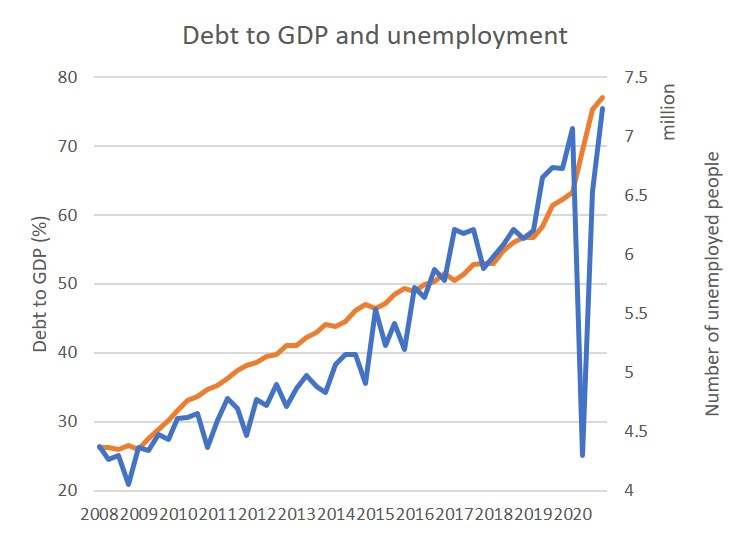Unpleasant fiscal maths
In 2019, the President of the American Economics Association, Olivier Blanchard, gave a keynote address. He summarised sensible fiscal policy into a simple rule of thumb. If the interest rate a country pays on its debt is lower then the country’s growth rate, then it can keep on borrowing. This is because taxes will grow faster than interest payments. It is much like an ordinary person borrowing money to buy a rental property - if the rent you get on the property pays for the bond, it is a no-brainer.
Being a typical economist, he tried to make it seem more complicated by using maths: "r" for the interest rate, and "g" for the growth rate. In short, if "r < g", you are going to be ok.
In South Africa, the opposite holds true. The interest rate we are charged on our debt is higher than our growth rate. ("r > g"). We are not going to be ok.
Since the second world war, South Africa has been “ok” for about about 25 years and “not ok” for
In a recent paper, Hylton Hollander and I show that interest rate on government debt has been higher than the growth rate during
In this coming financial year, National Treasury expects interest payments to be R301 billion. But revenues will only go up by R115 billion. We are not generating enough revenue to pay off our debt. And so every year, debt just accumulates. And we pay additional interest on that debt. It is not that we have a lot of debt. It is that our debt is going up faster than we can hope to repay it. Soon, the mashonistas will come find us and cut off our fingers and our toes.
Of course, there is an easy answer to this problem. Increase economic growth. As soon as economic growth rises, then tax revenue will increase, debt will begin to fall and the Treasury will have the space to raise spending .
Jump starting economic growth can be done through two easy steps, both of which the National Treasury proposed in its 2019 growth plan. Number one: Stop loadshedding by making it easier for people and companies to generate their own electricity. Number two: make it easier for highly-skilled people, like the engineers we need to fix our power stations, to work in South Africa.
These easy fixes are already Cabinet approved. The Electricity reforms are set out in a roadmap published by the Department of Public Enterprises in 2019. and a points-based system in a 2016 Green Paper . Although Cabinet is happy with the ideas, somehow a bureaucrat somewhere has forgotten to implement it.
Without economic growth, we won't have economic growth any time soon.




